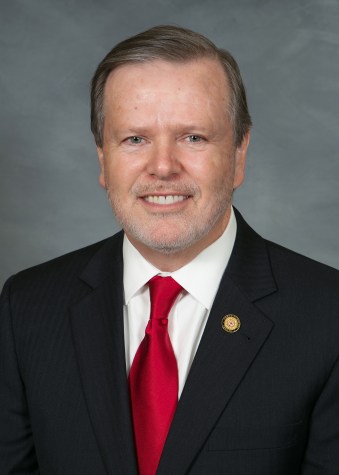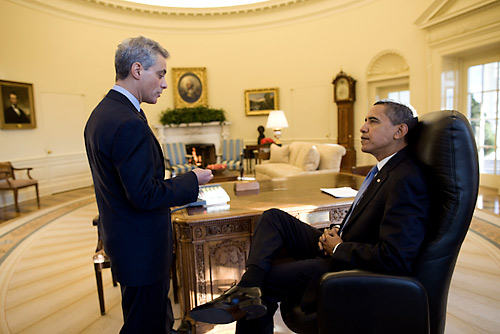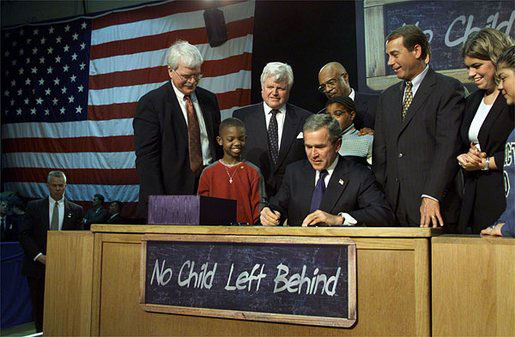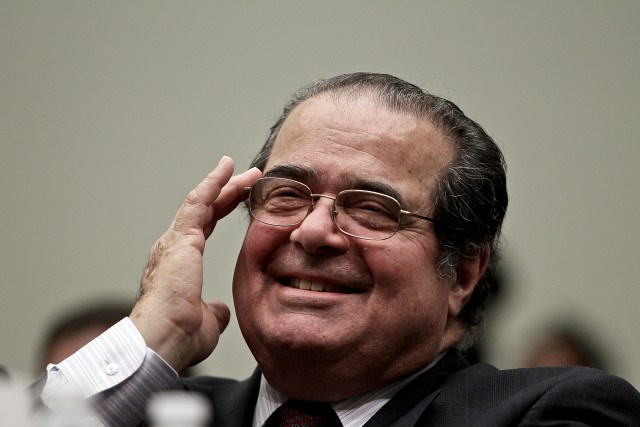feature image via shutterstock
Up to Our Ears in Religious Freedom
Now that the Supreme Court’s ruling has taken same-sex marriage off the table as The Big Legal Question (as perceived by the mainstream majority) for the LGBT community, the battle has moved on to what is cleverly packaged as “religious freedom” — namely, whether individuals can claim that their religious beliefs prohibit them from respecting what would otherwise be constitutional rights of LGBT people, even if that individual is an employee of the state. In the wake of the Supreme Court ruling, we saw this with RFRAs, most notably in Indiana — the kind of law aimed at protecting, say, local pizza parlors who didn’t want to cater gay weddings. The question of legal precedent when it comes to how far one’s religious freedom rights extend is an important one, though — it can impact things like who doctors provide treatment to, who is accepted by educational institutions, who gets fired if they come out at the workplace, and more.
Cut to North Carolina, which along with Utah currently has a law on the books allowing magistrates to refuse to perform marriages between same-sex partners — “Under the law, local magistrates, who can preside over marriages, and some register of deeds officials, who issue licenses, can opt out of performing marriages if they have a “sincerely held religious objection.” Three couples — two same-sex couples and one different-sex interracial couple, who successfully — are now challenging that law in court, with their attorney, Luke Largess, saying “People are entitled to have their religious beliefs about marriage, but the state can’t … pay

for it.” The author of the law’s response to the lawsuit included the phrase “political correctness mob,” so if you had that on your bingo card, congratulations and please come up to the front to receive your prize.
The outcome of this case won’t directly affect the rest of the US — most of the other 48 states aren’t looking at laws allowing state officials to opt out of same-sex marriages. It’s more a question of legal precedent when it comes to what’s privileged more, the religious beliefs of some citizens (who may be state agents) or rights that the state has granted to other private citizens. Which is a very important question, and one that’s of particular significance to LGBT citizens. We celebrated a legal victory — the question now is, will the state reinforce that people have to obey that law — and other laws that pertain to our personhood and safety — all the time, or only if they feel like it?
Meanwhile, in Tennessee, Carson-Newman University has filed a Title IX waiver and won the legal right to refuse acceptance to students who don’t practice Christianity well enough — for instance, “pregnant students, women who have had an abortion, single mothers, LGBT students and anyone else who does not fit their religious ideology.” What’s especially interesting is that the waiver doesn’t seem to have been filed as part of any particular plan to deny entrance to these groups, but at the behest of the school’s lawyer — a lawyer who has filed religious waivers for about a dozen other universities in the country. Based on what Carson-Newman’s president says, it seems that the attorney pushed it based on language related to First Amendment rights and religious identity.
“Yeah, I understood that our legal counsel said that this would further establish our identity as a religious school, a Christian school.”
But when Davis pointed out that the purpose of the waiver was to allow the school to discriminate, O’Brien disagreed.
“I don’t know how it would be,” the president insisted.
“Then why file the waiver?” Davis pressed.
“Yeah, that’s a good question,” O’Brien admitted. “I believe he felt that it might strengthen our position in relation to First Amendment rights. I don’t really know why something would be necessary beyond that. That was his counsel and we followed the template.”
The Column has an excellent investigation on this phenomenon, and how universities can refuse admittance to LGBT students and sometimes even fire faculty all while receiving public funding through grants and student aid.
[Shane Windmeyer, Executive Director of Campus Pride] said exposing schools that apply for the Title IX exemptions is important for families and prospective students. “Families deserve to know that this list of schools are not loving, safe spaces for any young person to live, learn and grow — and taxpayers should definitely not have to pay for a private college to openly discriminate against anyone.”
No individual lawyers are named in either story; if the assertion of Carson-Newman’s president is true and the same lawyer is involved in all of these cases, it doesn’t seem to have been dug into thoroughly.
The actual logistics of the right to marry or the right to attend a university aren’t really what’s at stake here, at least not in the long term; no same-sex North Carolinians have been unable to get married, although some may have had to find different magistrates to perform it. The real issue here is that of the religious right poking at the fabric of the laws trying to ensure the rights of marginalized populations, trying to find weak spots or loopholes. And of course, the not-necessarily-religious right is watching carefully too, totally willing to make use of some religious rhetoric if that’s what seems to be working best. So that will be an exciting and terrifying thing to keep an eye on!
Police/Violence
+ Dover police officer Cpl. Thomas Webster kicked Lateef Dickerson in the head and broke his jaw. This week, Webster was acquitted of assault.
+ This week two NY police officers, Garthlette James and Romeo Francis, pursued fleeing suspect Miguel Espinal, who died from a shot to the chest. Espinal appeared to be unarmed and no weapon was found at the scene. Now special state prosecutors have taken over the investigation of what happened; officials still haven’t made a public statement about whether the shooting was accidental or intentional.
+ The Washington Post has a look at the lawyers in the trial of the officers involved in the death of Freddie Gray.
+ In Chicago, where people are still grief-stricken and outraged over the police shooting death of 17-year-old Laquan McDonald, Mayor Rahm Emanuel is on the defensive. Emanuel has promised a “complete and total” reform of the notorious Chicago PD in an attempt to restore the peoples’ trust, saying “I take responsibility for what happened because it happened on my watch. And if we’re going to fix it, I want you to understand it’s my responsibility with you… But if we’re also going to begin the healing process, the first step in that journey is my step. And I’m sorry.”

Many are unimpressed by the statement, saying the only thing Emanuel could do to truly move towards restored trust is resign his office. In addition to the McDonald shooting, which was captured on video that the state had access to but which the administration did nothing about until the footage became public, this was the year in which a terrifying “black site” detention facility was revealed, the Department of Justice began investigating the CPD’s use of force, and the city had to create a $5.5 million dollar reparations fund for victims of police torture. And there’s much more!
Emanuel also said the city would stop fighting the release of a second video that showed a police officer shooting a man in the back. That video was released Monday during a presentation in which Cook County State’s Attorney Anita Alvarez said she would not charge the officer. Later that night, the city released yet another video showing an inmate being dragged out of his cell by his handcuffed wrists. While a police review board previously found the officers’ actions justified, Emanuel said he did not see how the treatment of the man — who later died following a reaction to an antipsychotics drug — could “possibly be acceptable” and said he did not consider the investigation closed.
In the meantime, protests that began after the release of the video of Laquan McDonald’s death have continued, with some now focused on calling for Emanuel’s resignation. This week, protesters blocked off Michigan Ave, in addition to demonstrating and chanting outside City Hall.
+ The trial of Daniel Holtzclaw, the former Oklahoma City police officer accused of raping 13 black women, is done hearing arguments; the (all-white, majority male) jury is deliberating. They began at 5:20 pm on Monday, and on Thursday will enter their fourth day of deliberation. Reports say that the jurors asked to tour the crime scenes at night during their deliberation; their request was denied.
Law & Order
+ Justin Trudeau has made a statement promising “nothing less than a total renewal of the relationship between Canada and First Nations Peoples,” although he said “his government wasn’t ready to commit to reforming the legislation that governs Ottawa’s relationship with many Aboriginals across the country — the Indian Act.” He has promised to begin an official inquiry into the horrific epidemic of missing and murdered indigenous women, beginning meetings with families of those who have gone missing or been killed as early as this week. He’s also talked about “significant” new investment into education for First Nations communities, and removing the cap that prevents the government from increasing funds for First Nations bands by more than 2% per year.
+ A petition to have Donald Trump banned from the UK has gained enough signatures — more than 300,000 — for a committee to consider sending the motion for a parliamentary debate.
+ Cincinnati has become the first in the US to pass a citywide ban on “conversion therapy” for LGBT youth under 18, in honor of Leelah Alcorn. There will now be a $200 fine per day “for therapists and counselors practicing therapy intended to “change” lesbians, gay men, bisexuals, or transgender people from their sexual orientation or gender identity.”
+ Congress has passed major education legislation which ends the No Child Left Behind Act, which evaluated schools based on standardized test scores and required them to improve scores each year or face penalties, and grants greater power to states when it comes to schools while still maintaining federal oversight. Called the Every Student Succeeds Act, it will necessarily play out differently state to state as each state makes different decisions about public education; schools will still be required to test students annually in grades three through eight and once in high school, and report those scores publicly referenced with student demographics.

+ Last week, an Arkansas judge struck down part of a law that kept same-sex parents from appearing on their child’s birth certificate, but that ruling was meant to apply only to the specific couples in the suit. The Arkansas Attorney General said that other birth certificates including both parents shouldn’t be issued, because she planned to appeal the ruling and ask for a stay. However, the Department of Health has chosen to defy her recommendation, giving out the birth certificates anyway.
Order in the Court
+ In the UK, courts are considering the legal parentage of a child born to a lesbian couple who are now separated. The gestational parent of the child took the child to Pakistan with her after the separation; the child’s other parent is now petitioning to have her child made a ward of court and returned to the UK.
+ In a case that sounds boring but has huge implications, the Texas supreme court is looking at how districts are drawn for voting. I can’t explain it very effectively and so will blockquote it here!
Debating a Texas case that could upend the political balance in the nation from New York to California, the more conservative justices indicated they were open to changing the way state and municipal voting districts are drawn to equalize population. Because non-citizens are included, that system boosts the number of heavily Hispanic districts, helping Democrats.
The more liberal justices opposed a switch to using only the number of eligible voters, which would render non-citizens invisible when drawing districts — along with children, prisoners, some ex-felons and some people with intellectual disabilities. That boosts the number of rural, mostly white districts, helping Republicans.
+ This week, the case of Fisher v. University of Texas came before the Supreme Court for the second time. Abigail Fisher, who is white, was not accepted to the University of Texas, and sued because she believes she was denied acceptance because affirmative action programs privilege applicants of color over her (although factually, white women are actually the group who most benefit from affirmative action). UT says that Fisher’s grades and test scores were low enough that she wouldn’t have been accepted to the university under any circumstances, regardless of race. NPR has recapped the significant points of the oral arguments, and they’re really worth reading.
Fisher’s lawyer, Bert Rein, immediately faced tough questions from Justice Sonia Sotomayor, who has said she was the beneficiary of affirmative action.
Assuming there was a need for more diversity at UT, what was wrong with the way the UT plan used race, she asked.
Rein replied that to comply with earlier Supreme Court rulings, each minority applicant would have to be measured against other applicants.
“My God,” said Sotomayor, “that sounds like you’re using race more rather than less than this plan does.”
Justice Ruth Bader Ginsburg observed that the Ten Percent Plan itself “is so obviously driven by one thing only, and that one thing is race.” She added that, “It’s totally dependent upon having racially segregated neighborhoods.”
Perhaps the most notable humdinger of the arguments was from Justice Scalia, who opposes affirmative action and who suggested that affirmative action might actually hurt black students because it would allow them into schools that are too good for them.
“There are those who contend that it does not benefit African Americans to get them into the University of Texas, where they do not do well, as opposed to having them go to a less-advanced school, a slower-track school where they do well. One of the briefs pointed out that most of the black scientists in this country don’t come from schools like the University of Texas. They come from lesser schools where they do not feel that they’re being pushed ahead in classes that are too fast for them…I’m just not impressed by the fact the University of Texas may have fewer [blacks]. Maybe it ought to have fewer. I don’t think it stands to reason that it’s a good thing for the University of Texas to admit as many blacks as possible.”

How your sausage of justice is made!
Grab Bag
+ The CDC has reported an alarming increase in HIV diagnoses in Latino men who have sex with other men.
+ In Australia, a former Victoria police officer says she was bullied and discriminated against on the force for being a lesbian, with coworkers starting rumors that she carried sexually transmitted infections and threatening to tase and beat her. She says that when she tried to report the situation, her testimony wasn’t taken seriously. She has “made a submission to the Victorian Equal Opportunity and Human Rights Commission inquiry into sexual discrimination and harassment in the police force.”







